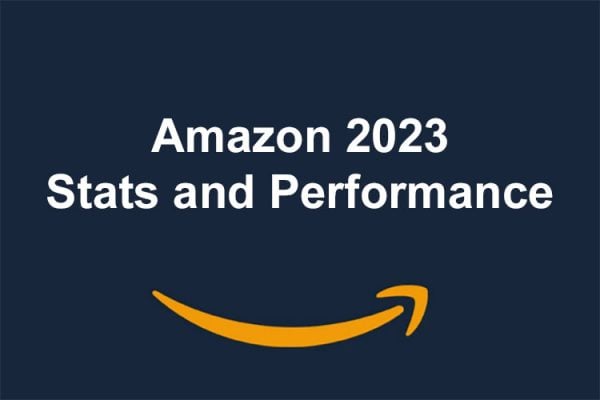Amazon are stepping up efforts to offer the best online prices to their buyers by stipulating that sellers must offer an equal or lower price than any other online channels.
From March 31st the price sellers on Amazon must ensure that “the total price and corresponding item price of each product you list on Amazon.co.uk are at or below the lowest total price and corresponding item price at which you offer the product via any of your other non-physical sales channels”.
The only exception is for products offered with Fulfilment by Amazon, where Amazon may offer free delivery. In this case the price on Amazon can be higher than the price on other channels, so long as the price is still lower than the combined item cost and postage price you sell at elsewhere online.
Amazon define other non-physical sales channels as specifically including “any online channels, mobile device applications, catalogues, third party platforms or marketplaces (e.g., ebay.co.uk)”.
If you’re an existing Amazon seller you have until 1st May to make any price parity changes. More information on Amazon Price Parity is available on the Amazon website.
I know several sellers who have in the past placed product at higher prices on Amazon knowing that that marketplace will attract sellers willing to pay a premium price. It will also make it harder for sellers to attract buyers to their own website for future purchases if there is no difference in price, or the website price is higher.
If you sell on Amazon do you list at a higher or lower price than other venues? Do you stock different inventory for Amazon or will you be affected by the new rules?










53 Responses
I’d love to know how they’re going to police and enforce that one, and indeed is such a clause actually legal?
There’s an obvious response for ebay to produce …
With Richard on this one.
Sure the title is right and it is in fact Amazon and not eBay 😆
Bryn
Why would you report a competitor and force them to cut their prices, unless it will lead to suspension? Interesting to see how it is enforced.
Are we no longer allowed to run promotions on our websites?
Amazon watches what sells then start to sell it themselves.
Margins on Amazon are fast disappearing with the race to the bottom by my sellers. Amazon usually matches the lowest price so monopolise the buy box.
Just for clarity, there is some confusion with the title and the actual practice. We have had Price Parity in the USA for years although this is new for the UK seller.
The confusion is that the Amazon Price Parity policy is NOT for sellers to have the “lowest prices on the internet” read the following….
“. Price parity for these sellers means that the item price and total price (total amount payable, excluding taxes) of each product a seller offers on Amazon.co.uk must generally be the same or lower than on the seller’s other non-physical sales channels. ”
SO…to clarify it guys…your OWN website and your Amazon listings MUST match pricing, not you against the world.
I hope that clarifies what this policy actually is about. As I said, we in the USA have had the policy in place since I have been on the site. Periodically Amazon may check your own web site to make sure you are not charging MORE on their platform than you do on your site. That is all price parity is, it is YOUR site they are comparing it too, not everyone elses.
Cheers,
John (ColderICE)

This bothers the heck out of me. We use FBA and have our own website.
We price competitively on our own website, and also list some of those same items at Amazon, using their FBA service.
Up to now, we added 15% to our own website prices (sometimes more, admittedly) to account for Amazon’s fees.
So what now? Do we raise our website’s prices by 15% in order to tow the line? Or do we eat into our margins on Amazon by 15% to match our own website?
I believe it was Sue who said (in reference to price cutting) a few months ago that there’s always someone on eBay who’s willing to go bust quicker than you. And it’s true! And it also applies to the Amazon Marketplace.
We give Amazon FBA around £400 a month in fees – although the service is fantastic, I can’t afford to reduce my prices by 15% for the same amount of labour.
And increasing my website’s prices by 15% is, quite simply, ripping my customers off.
It is only price fixing between an individual’s different non physical sales channels.
It is not price fixing between you and your competitor’s prices which may be ilegal.
Tricky making Amazon the cheapest venue when in my category they take 28.5% of the sales price and the same amount of the postage costs.
This compares with 8% I pay to ebay and 0% on the postage cost + 2.16% paypal (on total price sales + postage cost)+ 20 pence per UK transaction.
So total commission on the full price on ebay for me is approx 10% maybe a bit less, and on Amazon exactly 28.5%
So I can either make my ebay sales more profitable (if they still sell) by hiking the prices on ebay, or my Amazon sales less profitable (or possibly not profitable at all) by dropping the prices on Amazon.
Now if my Amazon sales were such that I could up the prices on ebay then I would do that, but ebay outperforms Amazon 20 to 1 currently.
When you consider Amazon will offer free delivery on a low cost item, it is clear they are taking no more than 20 to 30% profit on some of these products, while of course gaining top slots for them. They are squeezing to see where the market settles, but if they squeeze to much they won’t have one, at least not from market sellers.
I was thinking about starting to sell on Amazon, along with my already established online store.
Now I’m not so sure. I think the profit margins were already razor thin, now it seems they will be non-existent, if everyone has to have the same prices.
I think what John said makes sense – they must me just pricing for all your stores – so that in effect you aren’t channeling traffic away from Amazon to save money by buying direct on your store.
But this doesn’t even apply to US Sellers: “These requirements apply to the Amazon.co.uk, Amazon.de, and Amazon.fr marketplaces. We are not rolling-out these requirements to other Amazon marketplaces outside of the EU at this time.”
Very confusing.
Example: let’s say I’m already selling on Amazon (I’m not). I do currently sell at my own store, and am currently offering a Google Checkout $10 off promotion.
So in essence it’s cheaper for someone to buy from my store using Google Checkout than thru my Amazon channel. Am I in violation?
😈
We sell on our own website, amazon and ebay.
At 3 different prices – Some our website products at set on contract to our customers as they may buy a lot of a product so we offer them a contract price fixed for 1 year.
On both amazon and ebay we can not offer this as neither site has the options to allow us for regular customers to offer fixed discount
Ebay we sell on the cheapest and amazon is more we sell at a higher rate due to amazon fees are higher so to get the same profit margin the price has to be higher
Our website also is the most expensive out all of them but thats why we then offer discounts to customers on bulk and regulars but our prices are tailored to each customer depending on their needs
Dont know how Amazon stands with this legally, Anyone know a lawyer?
If we were made to sell at the same price on all sites or the same price or ebay and our site and either the same or cheaper on amazon how could they force us to do this?
Yes I know they have terms and conditions but they must be able to stand up in court.
Not impressed – thought ebay was the company who talked then thought about things after.
Please anyone if you know anyone in the legal dept can we get some advice on this.
I use Channel Max to automatically competitively re-price on Amazon in an attempt to maintain the ‘buy box’ within a set range. So it is conceivable that a product could have four different prices within a day. So a product may be higher than my website if Amazon and other sellers are out of stock or cheaper if there is a lot of competition on Amazon on a particular ASIN.
There is not the margin on Amazon to run promotions but there is on my website, I cannot also offer the promotion on Amazon.
When you actually work out the margins some sellers make the long term viability is questionable.
Saw the announcement today – oh i laughed
I sell on amazon, on ebay and elsewhere. Sometimes the prices on amazon are much higher on ebay and vice versa. Ive sold items for many times the price on one than the other.
Thing is, by more accident than design, I sell under entirely different usernames on each site and sell different things at different times – so good luck to amazon in figuring that one out.
This is a meaningless, unpoliceable change to policy on amazon and they can go whistle.
2 old sayings come to mind here;
‘Never knowingly undersold’…………..Aka; John Lewis Partnership
&
That’s the trouble with loss leaders, You sell to many!!………….Aka; Stan Newman, Laurie & Co (Importers) Ltd
I’ve been doing a bit of digging on this and unless I’ve missed something the original clause in the user agreement only specify’s Pro-Merchant sellers, not Marketplace sellers. However the announcment specify’s ALL sellers.
I sell very little on Amazon, so I tend not to take too much notice of the day to day changes, maybe I’ve missed something. Perhaps someone with more experience can verify what I’ve said.
Problems as I see them come from
1) postage. On the Amazon site books for instance attract postage to the buyer of £2.75 within the UK. On other sites this may vary or books might be postfree (see Abebooks for instance). Now postage has to be set exactly the same elsewhere as in Amazon. So no more FREE postage on own website, ebay, ABE etc. This slaughters volume outside Amazon (which is what they want)
2) No way can you use a price tool as this cud send Amazon prices higher than your static website.
Sure, setting your pricing tool to “standard price or less” takes all the profit opportunity away if u are also selling the items on your own site – or on other marketplaces. Also means you cannot use pricing tool on other marketplaces as this cud end up with Amazon price higher than elsewhere – especially after taking Amazon postage into account. Of course all is doable but the software enhancements required cud make it a questionable venture.
Am not sure if this is option, hike up own website prices to match your selling price on Amazon and then run a promotion or offer an x% discount voucher/code on sales or postage
Could this be an option?
It would be interesting to know if this has ever been enforced for Pro Sellers?
With the ‘revolving door’ of sellers on Amazon selling at unviable low prices I think prices are as low as they can possibly go.
If Amazon really wants established businesses to survive offering good service they need to leave sellers to set their own prices and stop undercutting them selling products themselves with Super Saver delivery.
I read somwhere (might have been here actually), that Amazon attributes a large amount of it’s sales and success to it’s third party sellers. Not sure that confusing sellers and kicking them offsite will help maintain this. Maybe Amazon think they can now manage without us?
Here we go again.
eBay squeezed all the smaller sellers (including myself) out of the their “ebay shops” system a while back by tripling the charges, and removing the “shop inventory” listing category.
Here we have Amazon effectively squeezing the smaller sellers out to make way for the big boys (including themselves).
Find a good product, get the buy box,
consistantly rate in top 100, Amazon go to your supplier and negotiate deep discount, Amazon get buy box and super saver, you and everyone else gets blown out of the water.
God Bless Ebay 😈
Sod….That bottle of Scotch is talking to me again… 🙄
after 30 years in the retail business i have realised nothing stays the same my first 6 years internet retailing were very profitable but i knew it would decline as it got more diluted amongst more sellers,you always have to keep looking ahead we made ugg boots for 25 years and stopped 3 years ago as the margin had gone still have all the machinery,there will be so few sellers left on these auction sites,there will not be enough variation,like the shopping mall with one major retailer
So basically if I sell the same product on ebay and amazon at the same price and it sells on amazon , I make less because amazon charges are higher – Mmmmm
I am new to Amazon pro seller in a closed category so I am prepared to give it a year, even at loss, to see how it pans out. I would not do that without the knowledge that ebay works for me.
Everyone here seems to be talking sense so I wonder how Amazon have failed to give a selling price reduction or even a comment about this very obvious hurdle.
Fine if they want to offer price parity on sellers costs (selling fees). Until that happens they can shove it!
This is even more balmy than some of ebays policies
How will it be policed anyway.
How will it be policed anyway
That’s a good question. Esspecially if there’s little or no connection between names, etc. on other venues. The policy has more hole in it than Swiss cheese.
Won’t it be largely policed by competitor reporting? Quite a good way of removing the opposition, I’d have thought?
Please do tell me, exactly where does ‘competitor reporting’ fit into your business plan?
(not forgetting quid pro quo)
All reporting a competitor will do is push the price even lower, therefore cutting everybodys margin. A good way?